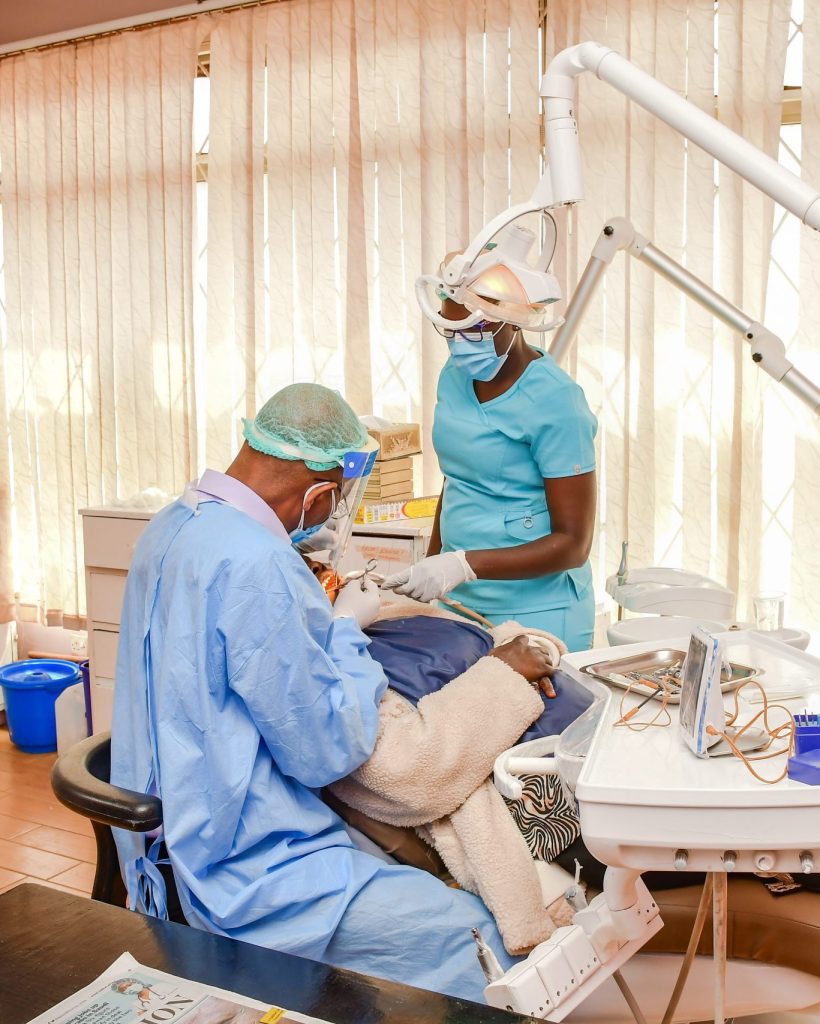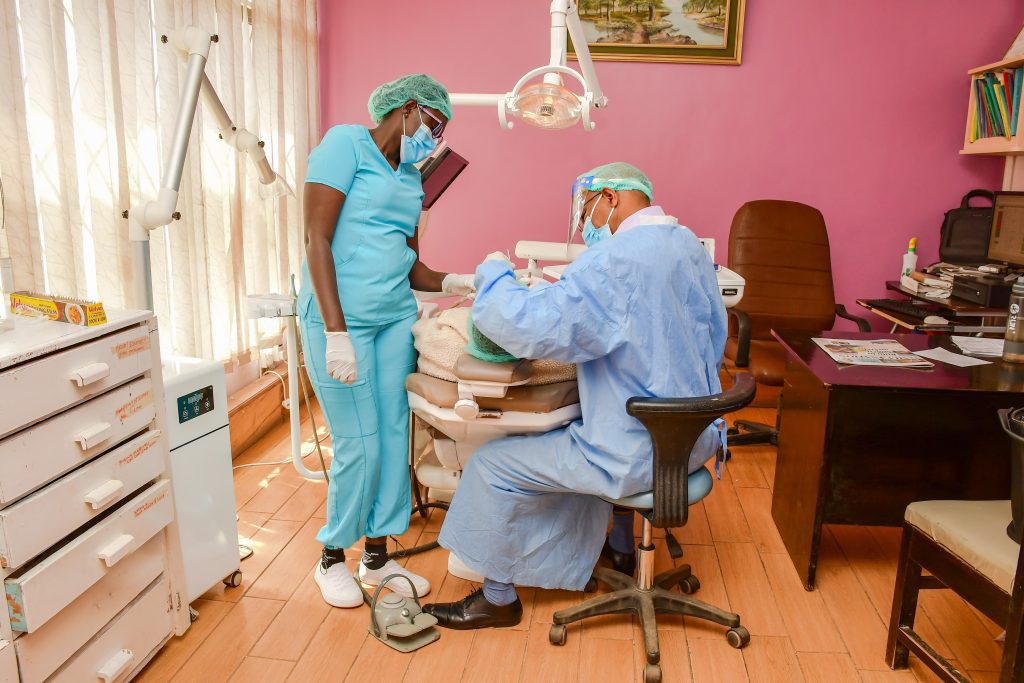Periodontology




Periodontal diseases
Gum-disease / Periodontal diseases are serious bacterial infections which destroy the attachment fibres and supporting bone that hold your teeth in your mouth. Left untreated, these diseases can and do lead to tooth loss. Periodontal disease is the number one reason why people over the age of 50 lose teeth. Periodontal infection can affect your general health and hence it is important to control.
Gum disease is caused by a build-up of bacteria in plaque, a sticky colourless film that constantly forms on your teeth. Regular brushing & flossing and hygienist treatment can remove this build-up and prevent gum disease from progressing.
If plaque is allowed to build up, it will irritate the gums, making them swell up and bleed. This is known as gingivitis. Gingivitis is reversible and is resolved by excellent at-home care and hygienist treatment.
If gingivitis is not treated and the plaque continually builds up, you will be at risk of periodontitis. This is when the fibres around the tooth are damaged by the increase in bacteria, resulting in pockets and ultimately bone loss around the tooth. Periodontitis is a serious and irreversible condition that can lead to tooth loss.
What is periodontology?
Periodontology, also known as periodontics, is a specialized branch of dentistry that focuses on the prevention, diagnosis, and treatment of diseases that affect the supporting structures of the teeth, particularly the gums and the bones surrounding the teeth. The structures involved in periodontology include the gingiva (gums), periodontal ligament, cementum (surface of the tooth root), and alveolar bone (the bone that holds the teeth in place).
Periodontists are dental specialists who have undergone additional training after completing dental school to become experts in periodontology. They are highly skilled in diagnosing and managing various periodontal conditions, ranging from mild gingivitis (inflammation of the gums) to more severe periodontitis (advanced gum disease).
Common Periodontal Conditions and Treatments:
- Gingivitis: Gingivitis is the early stage of gum disease and is characterized by red, swollen, and bleeding gums. It is often caused by the buildup of plaque and tartar on the teeth. Regular dental cleanings and improved oral hygiene can help reverse gingivitis.
Periodontitis: If gingivitis is left untreated, it can progress to periodontitis, where the infection spreads to the deeper structures supporting the teeth. Periodontitis can lead to gum recession, bone loss, and eventually tooth loss. Scaling and root planing (deep cleaning) are common treatments for periodontitis, and in advanced cases, surgical procedures may be necessary to address the damage.
Gum Recession: Gum recession occurs when the gums pull away from the teeth, exposing the tooth roots. This can lead to sensitivity and an increased risk of root decay. Gum grafting is a common procedure used to cover the exposed tooth roots and protect them from further damage.
Periodontal Surgery: Periodontists may perform surgical procedures to treat advanced gum disease or to regenerate lost bone and gum tissue around the teeth. These procedures can help stabilize the teeth and improve the overall health of the gums.
Dental Implants: Periodontists often collaborate with other dental specialists to provide dental implants. Dental implants are a popular tooth replacement option that involves the surgical placement of titanium posts in the jawbone to support dental crowns or bridges.
What is treatment like?
If you have gingivitis, we recommend that you visit us for regular professional cleaning. If you have periodontitis, a full initial assessment will be carried out to assist in planning a course of treatment specifically tailored to your needs. Scaling-and-Planning treatment will depend on how far the disease has developed.
Typically, you will undergo in-depth cleaning – a treatment known as “root debridement”. This may require several appointments. Typical cases last from 3 months to 1 year, but for some people, a lifetime commitment may be required. In advanced cases, root debridement is not sufficient to achieve optimal results. In this case, surgical treatment. To reduce discomfort, all periodontal procedures are completed under local anaesthetic and/or conscious sedation. There may be some post-operative discomfort which you will be advised on how to manage by our team.
How can I take care of my new smile?
It is critical that throughout your treatment and following treatment you maintain a high level of oral hygiene. You can do this by:
- Regular brushing; recommended 3 times per day
- Using fluoride alcohol-free mouthwash daily
- Using inter-dental brushes daily
- Eating plenty of fruit & maintain a healthy low-sugar diet; avoid sticky sweets, biscuits, gum, fizzy drinks etc.
- Visiting your dentist regularly
Your new smile will enhance your appearance, increase your confidence and improve your dentition. Please look after your new smile as a lack of conscientious care can lead to staining, decay, gum problems and many more complication.

